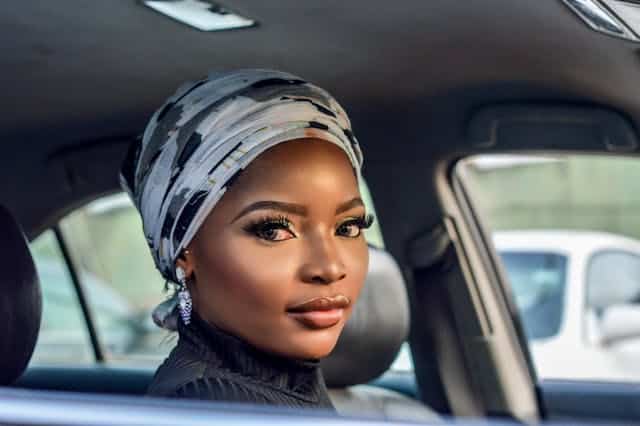In recent years, the world has witnessed a growing fascination with body shapes, particularly the focus on the gluteal region. Among the various body types that have gained attention, African women are often celebrated for their natural, exaggerated gluteal proportions. This unique characteristic has earned the title “Unusual Award No. 13” in various beauty and health discussions. In this article, we will delve deep into the reasons behind these extreme gluteal proportions in African women, their cultural significance, and the global fascination with this trait.
Understanding Extreme Gluteal Proportions
What are Extreme Gluteal Proportions?
Extreme gluteal proportions refer to an exaggerated size and shape of the buttocks, where the glutes are notably larger or more prominent compared to the average body size. In some cases, these proportions are seen as a sign of beauty, health, or fertility, particularly in certain African cultures.
These proportions have gained popularity in recent times due to the increasing presence of African women in the global media. This trend has sparked curiosity about the natural genetic and environmental factors contributing to these extreme body features.
Cultural Significance of Gluteal Proportions
In African cultures, large glutes are often associated with beauty, strength, and fertility. These proportions are seen as a symbol of health, wealth, and womanhood. In some societies, a fuller figure is a sign of having access to resources and good nutrition. Throughout history, women with fuller figures, especially those with prominent glutes, were often viewed as more attractive and desirable partners for marriage and reproduction.
This cultural perspective contrasts sharply with the ideals of thinness or lean physiques that have dominated Western beauty standards for much of the 20th and 21st centuries.
Biological and Genetic Factors Behind Extreme Gluteal Proportions
Genetics: A Major Contributor
One of the primary reasons behind extreme gluteal proportions in African women is genetics. Studies have shown that genetics play a significant role in determining body shape and size, including the distribution of fat and muscle. The glutes, being the largest muscle group in the human body, can be genetically predisposed to grow larger or become more pronounced.
In African populations, certain genetic variations may lead to a higher concentration of fat stored in the gluteal region. This is often seen in sub-Saharan African women, where the gluteal shape and size are more noticeable due to a natural tendency to accumulate fat in this area.
Hormonal Influences
Hormones also play an essential role in body fat distribution. Estrogen, the female sex hormone, influences where fat is stored in the body. Women typically store more fat around the hips and thighs, and in the case of African women, this fat distribution can result in larger glutes. These hormonal influences can vary across different populations and individuals, leading to the striking differences in body shapes observed globally.
Diet and Lifestyle
While genetics and hormones are primary contributors to body shape, diet and lifestyle factors also play a crucial role in gluteal proportions. Traditional African diets, rich in healthy fats, proteins, and carbohydrates, provide the necessary nutrients for muscle growth and fat storage in the gluteal region.
Furthermore, lifestyle factors such as physical activity, posture, and exercise routines can influence the size and shape of the glutes. Activities such as squats, lunges, and other strength training exercises can tone and enlarge the glute muscles, making them more prominent.
Global Fascination with Extreme Gluteal Proportions
Influence of Media and Pop Culture
In recent years, the media has contributed significantly to the global fascination with extreme gluteal proportions. Celebrities like Beyoncé, Kim Kardashian, and Nicki Minaj have popularized the “big booty” trend, causing a shift in beauty standards toward fuller figures. This has led to increased interest in African women’s gluteal proportions, as many African women naturally possess these physical traits.
Social media platforms, particularly Instagram, have played a central role in this shift. Influencers and celebrities showcasing their curvier bodies have helped to reshape global beauty standards, giving more visibility to individuals with extreme gluteal proportions.
Cultural Exchange and Appreciation
The global recognition of African women’s gluteal proportions also reflects a broader cultural exchange. People from various cultures are learning to appreciate and celebrate different body types, moving away from traditional Western beauty ideals. This appreciation is evident in fashion, where designers are embracing diverse body shapes and using models with fuller figures, including those with larger glutes.
Challenges and Controversies
Body Image and Body Shaming
While there is a growing appreciation for extreme gluteal proportions, there are also challenges that come with the increased attention. Some individuals with larger glutes face body shaming or stereotyping. They may be seen as “unnatural” or subjected to unrealistic beauty standards despite their body type being entirely natural for them.
Additionally, the rise of cosmetic surgeries aimed at enhancing gluteal size has sparked debates about body image and the ethics of such procedures. While some women embrace their natural body shapes, others may choose to undergo surgical enhancements like Brazilian Butt Lifts (BBLs) to achieve a larger gluteal profile.
Health Risks of Cosmetic Enhancements
The popularity of surgical procedures to enhance gluteal size has raised concerns about potential health risks. The Brazilian Butt Lift, in particular, has been associated with serious complications, including fat embolism, which can be fatal. It is crucial for individuals considering such procedures to be aware of the risks involved and to seek professional advice from qualified surgeons.
Conclusion: Embracing Diversity in Body Shapes
Extreme gluteal proportions in African women have captured global attention due to their cultural significance, biological factors, and the influence of media and pop culture. Whether naturally occurring or enhanced through surgery, these proportions are part of a growing appreciation for diverse body shapes.
In many African cultures, large glutes are seen as a symbol of health, fertility, and beauty. As the global beauty standard continues to evolve, we are seeing more inclusivity and appreciation for different body types. The key takeaway is that beauty should be celebrated in all its forms, and there is no one-size-fits-all standard.





